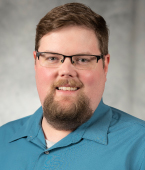Celebrating Native American Heritage Month: A Time for Reflection and Action in Osteopathic Medical Education
Published November 12, 2024
Inside OME

Written by Kyle Robinson, MLIS, Librarian Manager, Systems and Technical Services at the California Health Sciences University College of Osteopathic Medicine
November marks Native American Heritage Month, dedicated to honoring the rich histories, diverse cultures and significant contributions of Native American peoples. For those of us in osteopathic medical education (OME), this month offers a unique opportunity to reflect on our roles as educators, learners and healthcare providers in addressing the health disparities faced by Native American communities. It is a call to deepen our commitment to cultural competency, advocate for equitable healthcare and integrate the holistic principles of osteopathic medicine to make a meaningful impact.
Native American Heritage Month is not just a ceremonial observance. It is a recognition of the resilience and enduring spirit of Native American communities. Historically marginalized and subjected to systemic injustices, these communities continue to face significant challenges, particularly in healthcare. Issues such as limited access to medical services, high rates of chronic diseases and mental health concerns are prevalent. Understanding these challenges is crucial in fostering a more inclusive and effective healthcare system.
In acknowledging these disparities, OME can draw upon its foundational values to find meaningful ways to support Native American communities. Osteopathic medicine is founded on a holistic approach recognizing the interconnection of the body's systems and the influence of lifestyle and community on individual and public health. This philosophy aligns closely with many Native American beliefs emphasizing harmony with nature and the interconnectedness of all living things. By embracing these shared values, OME is set up as a natural bridge between cultural gaps and barriers, and one that can foster mutual understanding and create a common bond.
Cultural competency is a critical component of medical education and helps to raise awareness of cultural differences and how to effectively interact with people across varying beliefs and customs. For Native American patients, culturally competent care can significantly improve patient trust, treatment adherence and health outcomes. Incorporating Native American health beliefs and practices, among others, into the curriculum can enrich the educational experience and prepare students to provide compassionate, culturally sensitive care while also instilling a sense of shared belonging in the world.
Collectively, OME is responsible for addressing disparities through education, research and community engagement. If possible, encouraging medical students to participate in rotations or service-learning opportunities in Native American communities can provide invaluable firsthand experiences. Osteopathic institutions can observe Native American Heritage Month by organizing events, workshops and lectures highlighting Indigenous health topics and inviting Native American healthcare professionals and community leaders to share their perspectives, which would serve to enhance learning and foster meaningful partnerships.
Beyond educational prospects, pure advocacy is another vital consideration and one that students and faculty alike can engage in. Policy discussions and advocating for funding and resources to improve healthcare in Native American communities is essential and by doing so we extend our impact beyond the classrooms and the clinic and into policy and social justice. Diversity within OME serves to enrich the educational environment and improve healthcare delivery across the board. Actively recruiting and supporting Native American students in osteopathic programs is paramount to the health of their communities and the advancement of cultural equity in medical training. Scholarships, mentorship programs and supportive campus organizations can help to further create an inclusive atmosphere that nurtures and encourages future Native American osteopathic physicians.
Native American Heritage Month is also a time for personal reflection. As educators, providers and researchers in the medical field, examining our own inherent biases and preconceptions and engaging in self-education about Native American histories and cultures will serve to enhance our empathy, personal growth and overall effectiveness. This celebratory month is a powerful reminder of the ongoing journey toward equity and understanding within healthcare, and for the OME community, it is an invitation to align our actions with the osteopathic principles of holistic care and community well-being. By embracing cultural competency, addressing health disparities and fostering inclusion, we honor not only the heritage of Native American peoples but also our commitment to excellence in medical education and patient care.
Let us use this month as a springboard for sustained engagement and meaningful change, ensuring that our efforts resonate throughout the year and contribute to a healthier, more equitable society for all.
